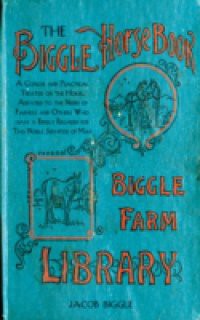People ought to try to make their horses happy, wrote Jacob Biggles wife Harriet in TheBiggle Horse Book in 1894. A happy, cheerful horse will do more work and live longer, and thus be more profitable to its owner, than one whose temper is kept constantly ruffled, whose disposition is soured by ill-usage, and whose peace of mind is often disturbed by the crack of the whip, the hoarse voice of the driver, the strain of overwork, the discomfort of a hard bed, or the pangs of hunger and thirst. When it comes to the treatment of animalsespecially the horsethe Biggles were ahead of their time.Folksy and informative, this manual offers timeless tips on the effective and humane treatment and training of horses and detailed descriptions of all the major breeds. Practical horsemen and veterinarians of the era contributed their wisdom and insight, and their maxims on owning, riding, and working with horses will provide endless hours of entertainment. Here are just a few:Proper food and lots of sentiment will make with good blood a good horse.If you must put frosty bits in some mouths, let it be your own. Suffering begets sympathy.The three greatest enemies of the horse are idleness, fat, and a dumb blacksmith.Dont try to fit a horse to the collar. It wont work. Fit the collar to the horse.Enhanced with beautiful engravings, illustrations, and snippets of poetry throughout, TheBiggle Horse Book remains a loving and fitting tribute to this noble servitor of man.

